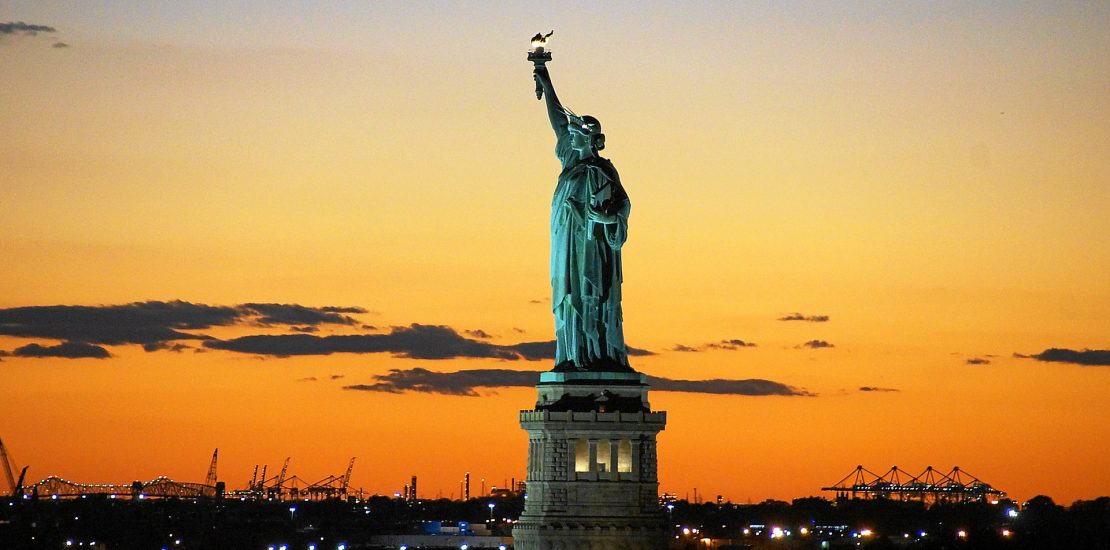Liberty versus Security
- May 24, 2021
- Posted by: Philip Struble
- Category: Uncategorized

Those who would give up essential Liberty, to purchase a little temporary Safety, deserve neither Liberty nor Safety.
Liberty and Security
As with past crises, during the COVID-19 pandemic, we learned how quickly we are at giving up our daily liberties to attains a higher level of security. Although the pandemic is not quite in our rearview mirror, life is getting closer to normal. We now need to focus on getting our liberties back.
Which will not be easy.
As business owners and entrepreneurs, we need to be concerned about our freedoms. Our ability to create and produce, to answer the needs of markets, and to employ the kinds of people we need that will generate an atmosphere of trust and confidence is dependent on those freedoms.
The 911 attack, nearly two decades ago, produced the TSA and a radical level of interference on air travel. It also originated the PATRIOT Act, which allows the government to obtain many detailed, personal records – including library and bookstore records, financial and medical records, and Internet communications – without probable cause and meaningful judicial review.
It has taken years to make a dent in restoring those lost freedoms.
The COVID-19 pandemic has enabled governments to adopt enhanced surveillance powers, suspend personal rights such as freedom of assembly, freedom of movement, and protections against warrantless searches and warrantless arrests, and has impacted elections without thorough considerations.
Many of these, and more, will take years to regain these lost liberties.
CS Lewis Reminder
Many may be thinking that the loss of these liberties is not so great, and pro-liberty advocates are fighting a battle that need not be fought.
But personal liberties are extremely important.
CS Lewis was a popular author of the early 20th Century and still is today. He was particularly concerned about the tendencies in the UK during WWI and WWII to give up Liberty for Security.
He says we have grown, “though apparently grudgingly, accustomed to our chains,” and warns that once government encroaches on our freedom, every concession makes it more difficult for us to retrace our steps. Perhaps the most striking quotation from CS Lewis is the one on the nature of the happiness that he would like to see.
Lewis says (from Willing Slaves of the Welfare State):
I believe a man is happier, and happy in a richer way, if he has ‘the freeborn mind.’ But I doubt whether he can have this without economic independence, which the new society is abolishing. For independence allows an education not controlled by Government; and in adult life it is the man who needs and asks nothing of Government who can criticize its acts and snap his fingers at its ideology. Read Montaigne; that’s the voice of a man with his legs under his own table, eating the mutton and turnips raised on his own land. Who will talk like that when the State is everyone’s schoolmaster and employer?
Note Lewis’s desire for political and economic freedom. This economic “independence” allows free people to eat their own “mutton and turnips.”
The Bible
CS Lewis’s writings echo the classic passage in Micah 4:4 where the ideal is that “each of them will sit under his vine and under his fig tree with no one to make them afraid.” The loss of freedom, according to Lewis, is deplorable.
While Benjamin Franklin’s quote about essential Liberty and temporary Security technically relates to civil government, it contains also a spiritual truth.
The Apostle Paul told the believers in Corinth (2 Corinthians 3:17).
“Now the Lord is the Spirit, and where the Spirit of the Lord is, there is liberty.”
Rather than giving us the freedom to sin, Jesus offers us freedom from sin.
Jesus said,
“Truly, truly, I say to you, everyone who commits sin is the slave of sin” (John 8:34),
and,
“If the Son makes you free, you will be free indeed” (John 8:36).
We have lost some of our freedoms during the COVID-19 pandemic, and we need to strive to regain them. Giving up freedoms for the short-term during a crisis is unavoidable. Getting them back is mandatory once the crisis is over.
CS Lewis understood this as he lived in London during the blitzkrieg of WWII. He also knew it would require diligent work to restore these freedoms as soon as the war was over. The work before us today is no different.
